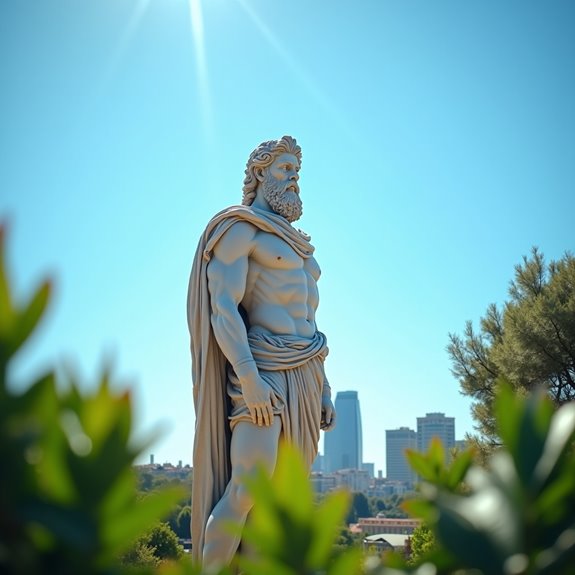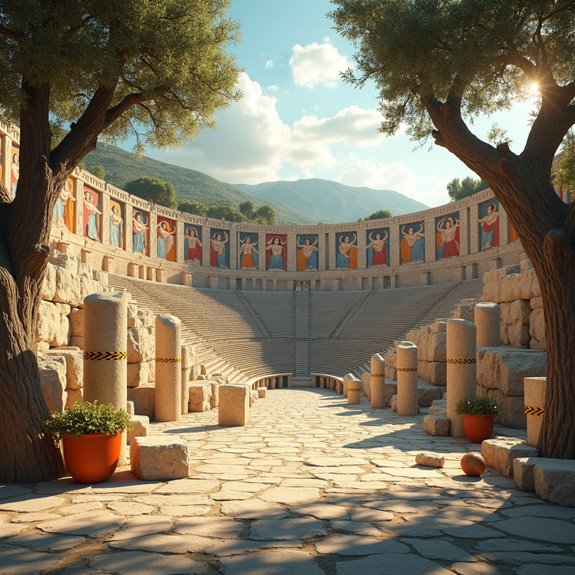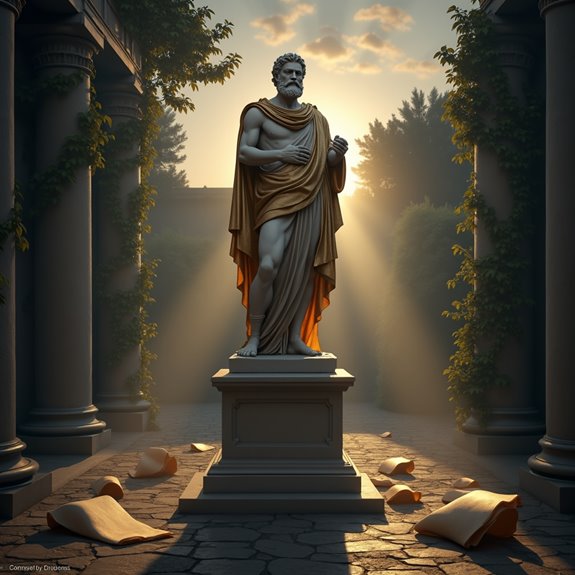Greek Myths That Influenced Modern Culture
Greek myths have shaped narratives across cultures, offering timeless lessons that resonate even today. From the heroics of Hercules to the cunning of Odysseus, these archetypal figures reflect enduring human struggles. Their influence is evident in literature, film, and art, where themes of love, conflict, and morality are ever-present. Yet, the question remains: how do these ancient tales continue to captivate modern audiences and mold contemporary values?
Introduction

Greek myths have long captivated audiences, serving as a rich tapestry of stories that explore human nature and the cosmos. These ancient tales, filled with gods, heroes, and fantastical creatures, resonate with timeless themes such as love, betrayal, and the quest for knowledge. Their influence permeates modern culture, inspiring literature, art, and film around the world. Prominent figures like Zeus, Athena, and Odysseus continue to impact contemporary narratives, embodying archetypes that reflect modern struggles and aspirations. As society evolves, the core elements of these myths endure, reminding people of their shared experiences. Greek mythology not only entertains but also prompts reflection on moral dilemmas and the human condition, ensuring its relevance across centuries.
Myths Shaped Ancient Greek Society

Although the gods and heroes of ancient mythology might seem distant, their stories profoundly shaped the beliefs and values of Greek society. These myths served as moral lessons and cultural touchstones, guiding behavior and reinforcing social norms. For instance, tales of bravery and wisdom encouraged citizens to aspire to heroic ideals, while stories of hubris warned against arrogance. Festivals and rituals honoring deities created a communal spirit, uniting the people in shared beliefs. The myths also explained natural phenomena, providing a sense of order in a chaotic world. Fundamentally, these narratives connected individuals to their heritage, instilling values that governed daily life, politics, and art, ultimately weaving a rich tapestry that defined ancient Greek identity.
Notable Cases or Sightings

What stories have emerged in modern times that echo the age-old themes of Greek mythology? Recently, several significant sightings and cases have captivated the public imagination. For instance, in 2020, a mysterious figure resembling the Greek goddess Athena appeared during a protest in Athens, igniting discussions about justice and wisdom. Similarly, urban legends surrounding the Minotaur have popped up in various cities, with reports of strange encounters in underground tunnels. Additionally, sightings of “chimeric” creatures, combining traits of different animals, have sparked curiosity and fear, resembling ancient tales. These occurrences highlight how Greek mythological themes continue to resonate, as people interpret unusual events through the lens of familiar stories, reinforcing the timeless nature of these narratives in contemporary culture.
Common Theories or Explanations
Numerous theories have emerged to explain the resurgence of Greek mythological themes in modern sightings and encounters. Some scholars argue that society’s fascination with these ancient tales stems from a collective desire for meaning during chaotic times. Others suggest that the accessibility of mythology through media, like films and literature, has revitalized interest. Additionally, it’s proposed that these myths resonate deeply with universal human experiences, such as love, betrayal, and heroism, making them timelessly relevant. Moreover, the emergence of new technologies allows for reinterpretations of myths, merging ancient narratives with contemporary issues. As culture evolves, these stories adapt, allowing individuals to reconnect with their roots while exploring current existential dilemmas. This dynamic interplay keeps Greek myths alive and influential.
Frequently Asked Questions
How Did Greek Mythology Influence Modern Literature and Films?
Greek mythology’s themes, characters, and narratives inspire modern literature and films. Writers and filmmakers fuse ancient tales with contemporary settings, creating complex stories that resonate, enriching audiences’ experiences with timeless conflicts and archetypes that remain relatable.
Are There Modern Holidays Based on Greek Myths?
There are modern holidays inspired by Greek myths. For example, people celebrate the summer solstice, resembling ancient festivals honoring gods like Helios. Additionally, some events commemorate mythological stories, blending tradition with contemporary practices.
Who Are the Most Popular Greek Gods Today?
Today, people often recognize Zeus, Athena, and Apollo as the most popular Greek gods. Their stories captivate audiences, inspiring movies, literature, and art, reflecting timeless themes of power, wisdom, and creativity.
What Lessons Can We Learn From Greek Myths Today?
He learns that courage, wisdom, and resilience are crucial in overcoming life’s challenges. Additionally, she recognizes the importance of humility and compassion, understanding that even gods faced struggles, making their stories relatable and insightful for all.
How Do Greek Myths Connect to Contemporary Art?
Greek myths inspire contemporary artists, intertwining timeless themes of love, betrayal, and heroism into modern narratives. They ignite creativity, offering rich symbols and archetypes that resonate deeply within today’s visual and performance art landscapes.


